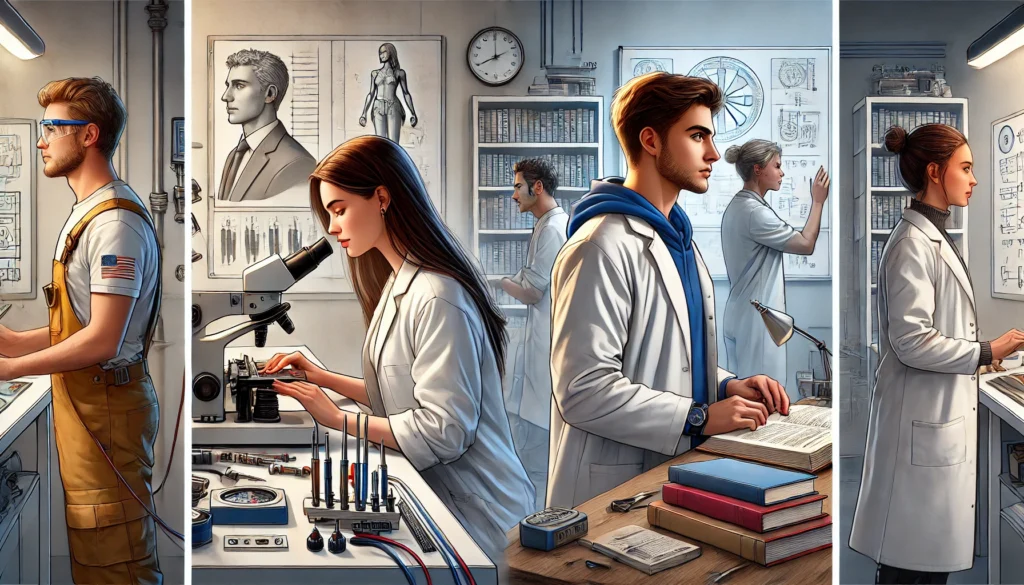The job market has changed, and the choice between a technical course or a university degree is no longer as obvious as it once was. Companies are increasingly focused on hiring professionals who have practical skills and are ready for the day-to-day work, and a university degree is not always the quickest way to get a good job.
So, what's really worth it? A technical course, which lasts less time and prepares you for a specific profession, or a higher education degree, which opens doors to higher positions in the future? The answer depends on what you're looking for in your career and how the market is behaving.

Technical course – quick employment and lower investment
If your goal is to enter the job market quickly, a technical course might be the best choice. It has some very clear advantages:
- Short duration – In general, it takes 1 to 2 years to complete.
- Lower costs It's much more affordable than college and, in many cases, free.
- High employability Many companies seek skilled technicians and offer good opportunities right after training.
The sectors that hire the most technical professionals include:
- Information Technology
- Industry and Maintenance
- Health (as a Nursing and Radiology Technician)
- Logistics
- Civil Construction
With the growing need for skilled labor, some technicians are able to earn starting salaries higher than many university graduates.
But does a technical course offer long-term professional growth?
Higher education – more doors open, but with challenges.
A college degree is still essential for some careers. If you want to be a doctor, engineer, lawyer, or psychologist, there's no way around it: a university degree is mandatory.
In addition, the college offers some important advantages:
- Growth opportunities Some positions require a university degree for promotions.
- Potential for higher salaries in the future. Professions that require more specialization generally pay more.
- Networking and in-depth knowledge The university environment offers more networking opportunities and theoretical learning.
The problem is that a degree alone doesn't guarantee a job. Many companies look for practical experience, something that many recent graduates lack.
So, how do you choose between the two paths?
What is truly worthwhile?
The decision between a technical course and university should take into account three main factors:
- Your professional goal If the career you want requires a degree, college is the only way. Otherwise, a vocational course might be more advantageous.
- The time and money you can invest – College requires years of dedication and is more expensive, while a technical course is faster and more affordable.
- What the market is asking for In many fields, a good technical course already guarantees good opportunities.
The best choice might be a combination of both.
Many professionals start with a technical course, enter the job market quickly, and then go on to college to grow even further.
This allows you to gain practical experience even before obtaining your university degree, which can be a major competitive advantage.
Which path to follow?
If you need a job quickly and don't want to spend years studying before starting work, a technical course might be the best option. However, if your goal is a career that requires higher education or offers long-term growth opportunities, a university degree remains a worthwhile investment.
The most important thing is not just the type of course, but what you do with the knowledge you acquire. Today, the job market values those who have real skills and can solve problems. Whether it's a technical course or a university degree, what really makes the difference is your ability to excel at what you do.
So, which option makes the most sense to you?
See also: Free technology courses from Fundação Bradesco
March 1, 2025
Graduated in Literature – Portuguese/English, and creator of the website Successful Writer, seeks to expand everyone's knowledge with relevant information on a variety of topics, as a writer. At Vaga de Emprego RJ, she provides opportunities and tips on the job market.